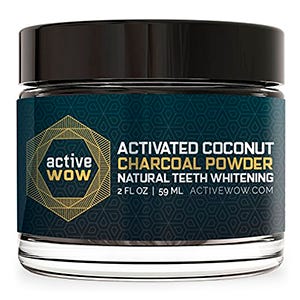Have you
ever heard of the multiple benefits of activated charcoal? Many years
ago, this product was considered only useful to solve problems related
to the intestines, but today, a lot of cosmetic benefits have been
discovered with the use of pudding as the main ingredient in our
cosmetic cleaning products, including tooth whitening.

Many
dental health products use activated charcoal instead of fluoride
because long-term fluoride composition can have harmful side effects on
the body. Activated charcoal teeth whitening can be an excellent natural
cleaning option. By using it you can turn your mouth black, however,
this product will not stain your teeth, but by rinsing your mouth, your
teeth will be cleaner.
Here’s
how to whiten your teeth with active carbon and we’ll give you the most
complete and useful recommendations so you can get the most out of this
product easily at home. If you are looking for a stunning smile, you
are in the right place.
How Activated Charcoal Works on Teeth
Activated carbon is mainly used for medical purposes. It has a large number of micropores capable of absorbing toxins.
When
we use activated carbon in our teeth, not only are we exposed to a
natural whitening process, but we also eliminate the harmful bacteria
that we have in our mouth, which can cause problems such as cavities or
gingivitis.
There
are many factors in everyday life that can cause our teeth to become
stained. Among these factors are food, drink, medicine, poor dental
hygiene, aging or smoking which can cause the well-known yellow color in
the teeth and the irremediable loss of a bright white smile.
How to Use of Activated Charcoal on Teeth
Tooth whitening with activated carbon is very simple. The materials we must use are very simple;
- A toothbrush
- Active Charcoal
To see the rest of the list please visit us at our official site
Comentarios
Publicar un comentario